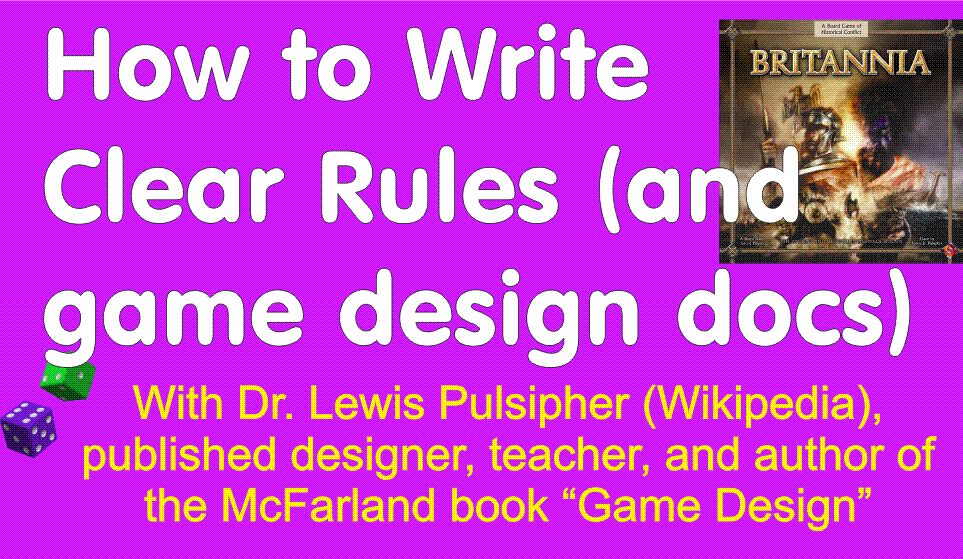Students typically come into a game development curriculum with many delusions. One (well, really three) is that they're going to have one great idea, quickly turn it into a game, and then bask in adoration.
A subset of these delusions, which I want to concentrate on here, is that the first game they'll make will be excellent ("awesome" is the usual word I hear). It's hard to make students realize that initial failure in game design must be expected, just as in other walks of life.
So they make their first game, or game concept. It's usually terribly derivative of other games. If (as they should be) they're required to design non-electronic games, the result is even worse, because they derive their ideas from Monopoly and worse games, the "Ameritrash" that so annoys "real boardgamers" nowadays.
In the "Age of Instant Gratification" young people just don't understand the requirement to learn how to do something well before you can become really good at it. They're shocked to find out that they've produced wholly inadequate stuff. They've been patted on the back for years in K12 for doing next to nothing, because (with exceptions) K12 is all about false esteem rather than capability.
Here are some examples I describe to students from well-known practitioners that illustrate the time it takes to learn a craft:
John Creasey, in about 65 years of life, published over 600 books, mostly mysteries. I once read that he received OVER 700 REJECTIONS (presumably mostly for short works) before he sold any writing. He had to learn how to write well, yet look where he went in the end.
Jerry Pournelle, a well-known science fiction and technology writer (two Ph.D.s) says that if you're willing to throw away your first million words, you can become a novelist. In other words, until you learn your craft, what you're writing--that's the equivalent of at least ten normal novels--won't be worth publishing.
Even good stuff gets rejected by publishers. The Lord of the Rings was rejected by publishers. My game Britannia was rejected by the American publishers, who only published it after it was published in Britain! These were products that proved in the end to be quite viable (Brit isn't on the same level of LOTR, of course), yet they still got "thumbs down".
Of course there are exceptions. J. K. Rowling of "Harry Potter" comes to mind. Though she was much older than our typical student.
How did I practice? I designed variants (often amounting to new games) of a game called Diplomacy for years, and made adventures and rules modifications for the paper version of Dungeons and Dragons, long before I designed commercially-viable stand-alone games.
When students find out how much work is required to improve and then polish a game before it can have a chance to be commercially successful, many opt for another, "easier" career. The following quote (about books) from one of the giants of the 20th century illustrates what happens with games as well:
"Writing a book is an adventure. To begin with, it is a toy and an amusement; then it becomes a mistress, and then it becomes a master, and then a tyrant. The last phase is that just as you are about to be reconciled to your servitude, you kill the monster, and fling him out to the public." --Sir Winston Churchill
Those who cannot get through these later phases will never be successful in the game design business.
Subscribe to:
Post Comments (Atom)
"Always do right--this will gratify some and astonish the rest."Mark Twain
"A designer knows he has achieved perfection not when there is nothing left to add, but when there is nothing left to take away." Antoine de Saint-Exup'ery
"Not everything that can be counted counts, and not everything that counts can be counted." Albert Einstein
"Make everything as simple as possible, but not simpler." Albert Einstein





No comments:
Post a Comment